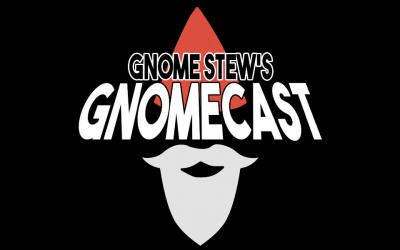Every week, I run a game on Sunday evenings. Currently, I am running Blades in the Dark and Neon City Blues on alternating weeks. Every Sunday afternoon, I start my pre-game so that I am ready for game night. What makes up my pre-game changes depending on the game, where it is being played, etc, but there is always a pre-game. Let me tell you about it.
Getting Ready to Play
I try to be very organized in my gaming. Some of it comes from genetics, some from childhood trauma, and a bit comes from my time as a college DJ, where it was impressed upon me that you never have dead air. Never. I try to carry that through to my gaming by making sure everything is prepared.
Now in the prep life-cycle, pre-game is the second-to-last step. The first steps involve session and campaign prep. I talk about those a lot in Never Unprepared and with Walt in Odyssey. The last step is mise en place, when you set up your gaming space.
Back to pre-game. It is your final chance to get things in order so that you can come to the table ready to play.
Things to Consider
There are two components to pre-game: mental and physical.
The Mental
The mental part of pre-game is to get your mind ready to run the game. For me, this is the time when I take a final look at my session prep and start loading it into short-term memory. I have prepped the game some time before Sunday, typically at the start of the week, so I don’t always remember every detail of what I came up with. With the game only hours away, it’s now safe to put all the details into my short-term memory.
That is accomplished by reading my session prep and imagining how various scenes will look, or how NPCs will sound. Based on this, I may add a few last-minute notes to my prep.
I will also use this time to check any notes (mine or the players) on the past session to also refresh myself on what happened at the last session.
Finally, this is the time to check any rules that may come up or just browse the rule book to reinforce the mechanics of the game. For newer games, this may be sitting down and re-reading the rules; for games I am more familiar with, it could be just looking up some specific rules, powers, or spells that are going to come up.
The Physical
On the physical side, this is the time to get the physical components together for the game. Depending on whether your game is at your place or another place, this will vary. If you are playing at your place, this may also be a time to prepare your physical gaming space, cleaning or tidying up. If you are playing online, this is the time to prepare your VTT.
Here are several possible activities you may need to do, depending on where your game is played and what game is being played. This list isn’t comprehensive, I am sure you can think of a few more things…
- Cleaning and preparing the gaming space
- Deciding what books you will need at the table
- Gathering minis or making tokens for the encounters planned in the session
- Getting together maps (physical or digital) for the session
- Printing handouts
- Gathering props to be used in the game
- Packing your gaming materials for transport
- Uploading assets to your VTT
- Determining what aids you need for the game (cards, name lists, etc)
- Charging electronics (tablets, laptops)
- Making a playlist or loading a soundboard for the session
Pro-tip: If you are using any electronics, run updates during your pre-game. Nothing kills the flow of a game like a device that starts to update when you get to the table. During pre-game, check for updates and run them while your devices are charging.
My Game Day Rituals
For both my games, my session is on Sunday evenings, so my pre-game happens early Sunday afternoon. It is just a few hours before the game, so I have ample time to run through all the items on the list without feeling rushed.
For my Blades game, I am running at a friend’s house. So my pre-game looks like this:
- Read the session notes – load into short-term memory.
- Optional – re-read parts of the rulebook.
- Charge my iPad and Apple Pencil.
- Confirm the sync of my Obsidian database from my desktop to my iPad.
- Confirm the sync of my OneNote session notes from my desktop to my iPad.
- Set up session notes pages in my Blades Good Notes notebook, and put a heading and page number on them.
- Gather my physical materials – Character sheets, rule book, Clock Cards, etc.
- Pack my game bag.
For my Neon City Blues game, my pre-game looks like this:
- Clear my dining room table.
- Read the session notes – load into short-term memory.
- Review the open mysteries.
- Charge my iPad and Apple Pencil.
- Confirm the sync of my Obsidian database from my desktop to my iPad.
- Confirm the sync of my OneNote session notes from my desktop to my iPad.
- Set up session notes pages in my NCB Good Notes notebook, and put a heading and page number on them.
- Gather my physical materials – Character sheets, rule book, Clock Cards, etc.
- Put everything on my rolling cart in the office (it gets rolled out to the dining room table after we eat).
Preparing for Success
The pre-game is an important step in being prepared to run your session. It gets you organized mentally and physically to come to the table and run a great game. What goes into your pre-game will be a mix of your style, the game you are playing, and where you are playing. Come up with a pre-game (and even make it a checklist if you need to), and you will be prepared to run your session.
Also, one last time — run your updates before your session starts!
Do you pre-game? When do you do it? What is in your pre-game?
















